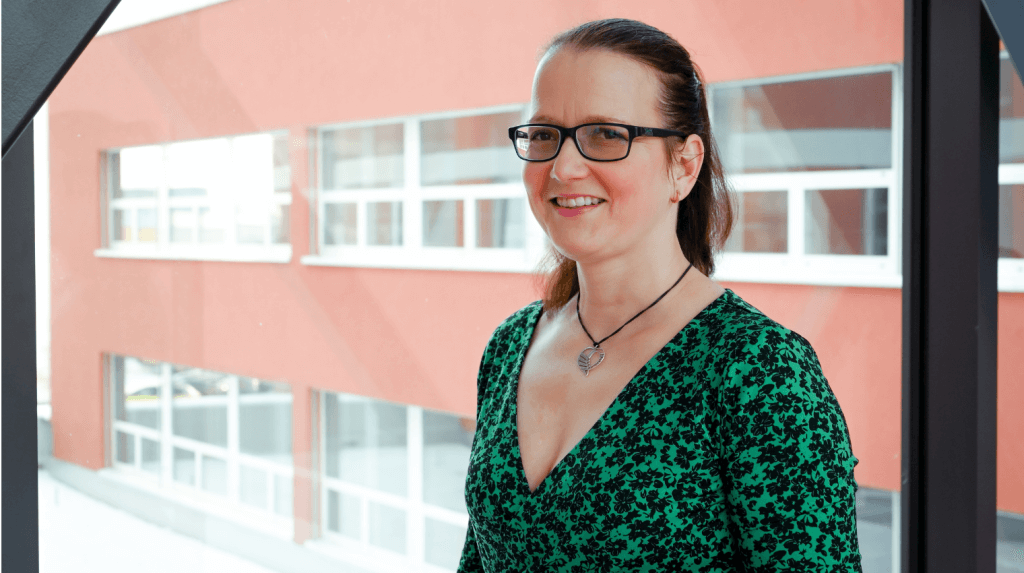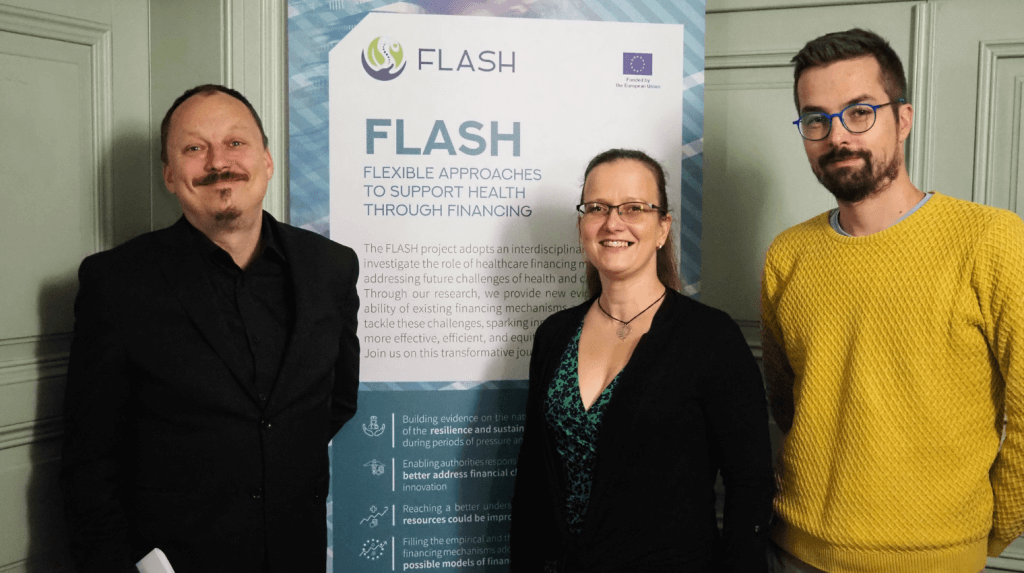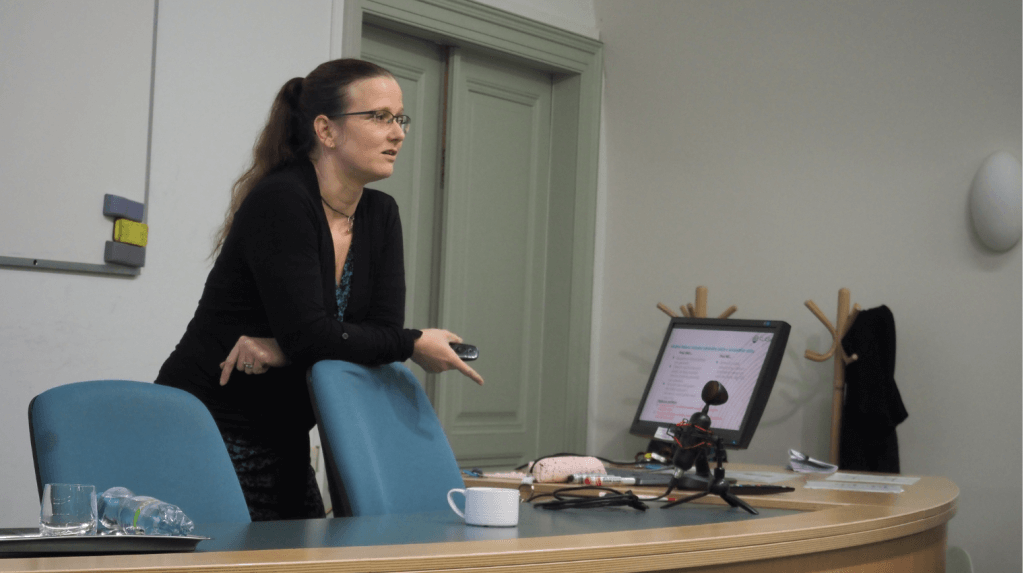“We need a systematic and conceptual change.” IES FSV UK researcher aims for more efficient healthcare in Europe

Healthcare in Europe faces a number of challenges – Europe’s population is ageing and the organisation of healthcare is often not flexible and able to adapt to challenging situations such as pandemic outbreaks. The FLASH project aims to carry out a thorough analysis of healthcare financing mechanisms in Europe and bring changes which will contribute to a resilient and flexible European healthcare system. Jana Votápková from the Institute of Economic Studies is involved in the project which is part of the EU’s Horizon Europe grant programme.
The four-year multidisciplinary FLASH (Flexible Approaches to Support Health through Financing) project is divided into eight research packages. In Package 2, FSV UK together with the Health Insurance Bureau (HIB) want to propose changes that will lead to sustainable financing of the revenue side of health insurance.
Votápková is also one of the principal investigators of research package 5, where she will analyse the potential for cross-border healthcare and, in particular, calculate price differences for hospital admissions between the Czech Republic and Germany. She says that the main difficulty is that healthcare in the European Union still largely lies within the responsibility of national states. Medical treatment in another member state can only be obtained in three defined ways.
“However, for people living in the borderlands, none of these options is a solution to the lack of healthcare in the region,” the health economist points out. “If you break your leg in the Czech Republic, but the nearest hospital is in Germany, it is part of a so-called planned care.And you can only use it in another member state with the prior consent of your health insurer or for full payment, after which you can ask your health insurer for reimbursement, but only up to the Czech prices.However, it takes some time to get prior authorisation and you need this treatment now,” Votápková explains.

The most appropriate solution would be to create a system that would allow EU residents to make decisions about healthcare not based on nationality, but on accessibility. “Because in some cases, time availability can save lives,” the economist notes. “However, health insurers are not very keen on cross-border solutions of healthcare inaccessibility, using the argument of a price difference that no one has ever quantified accurately,” she adds.
The FLASH project thus wants to find ways to quantify the exact price difference of selected hospitalisations and thus convince health insurers that cross-border healthcare reimbursement makes sense. “Moreover, we expect the price difference for some hospitalisations to be getting closer to our prices. We know from rough cross-border reimbursement data, which is not very accurate, that on average we are at 156 per cent of Czech prices for hospitalisations in Germany. In 2014, it was 442 per cent,” she says.
Collaboration within external teams
Votápková collaborates with researchers from all over Europe, with whom it is necessary to meet regularly. Joint meetings are held once a year, while teams within research packages meet more frequently. “The project is set up so that each expert team – often from a different country – can work on what is most pressing for its health system. And then, by sharing good practice, we connect the dots for wider applicability and possible spillover to other countries and other expert teams, which requires teamwork,” she explains.
She admits that research on cross-border healthcare is a departure from classical economic modelling. But she also considers it very important that analytical economists participate in projects that have a real impact. “Although we are not directly building an econometric model in the package 5, we are applying analytical skills and a way of thinking that we possess thanks to a rigorous mathematical apparatus.We can make a real impact on the lives of thousands of people living in the borderlands,” she points out. She also stresses that health economics is a legitimate economic discipline which, given that healthcare is also subject to financing, models economic issues.

The need for conceptual change
In general, the most pressing problem of the current healthcare system is the negative demographic development, according to Votápková. “The proportion of state insured persons, i.e. persons of retirement age, will continue to increase and the proportion of persons of working age will proportionally decrease. Older people suffer from chronic diseases, life expectancy is increasing, but not the expectancy of life in health. We will therefore need more funding to cover healthcare expenditure. Or we will have to make our healthcare system more efficient, make changes in financing or change the way the revenue side of the public healthcare system works,” she says.
Along with this, she also mentions that the state of the Czech healthcare system – as well as other areas – has been negatively affected by the covid-19 pandemic and the subsequent economic crisis. However, the situation has only highlighted the importance of setting up the healthcare system to be resistant to such crises. “So we need a systematic and conceptual change to make the next potential crisis like the covid pandemic systemically manageable,” she says.
If this does not happen, in her opinion, the problems mentioned above will only escalate, until gradually there will be insufficient funds to cover all healthcare needs in the Czech Republic. “But we believe that our work in the FLASH project will contribute to managing the situation,” she concludes.
PhDr. Jana Votápková, Ph.D. works at the Institute of Economic Studies FSV UK. Her research focuses on healthcare economics, especially on the measurement of efficiency in healthcare and the analysis of the effect of planned and adopted healthcare reforms. Her work has been cited by the Organisation for Economic Co-operation and Development (OECD).
In addition to academic research, she also enjoys working on projects with a real-life impact on citizens, such as analysing the potential and cost differences in cross-border healthcare provision, particularly in the Šluknov region, which is currently suffering from a lack of affordable quality healthcare.
In 2012, she won the Karel Engliš Prize of the Czech Economic Society for her study “The Effect of the Abolition of User Charges on the Demand for Ambulatory Doctor Visits”. In 2016, she received the Josef Hlávka Award for outstanding progress and completion of her studies in Economics.


